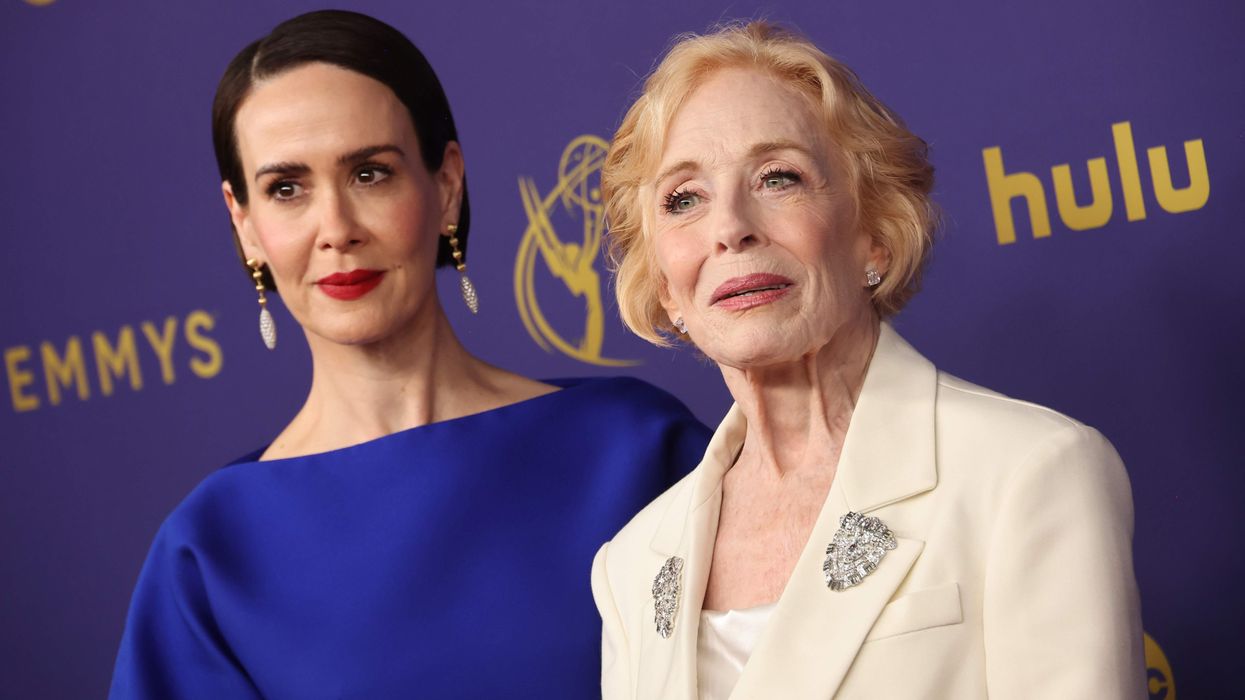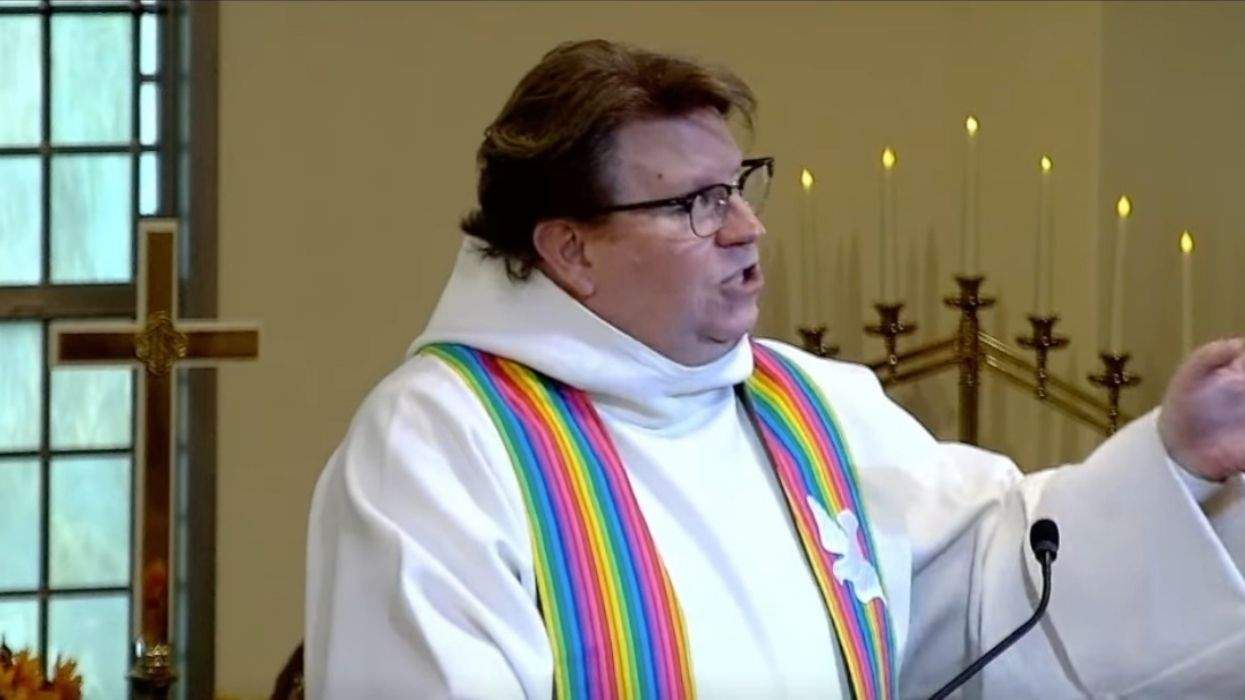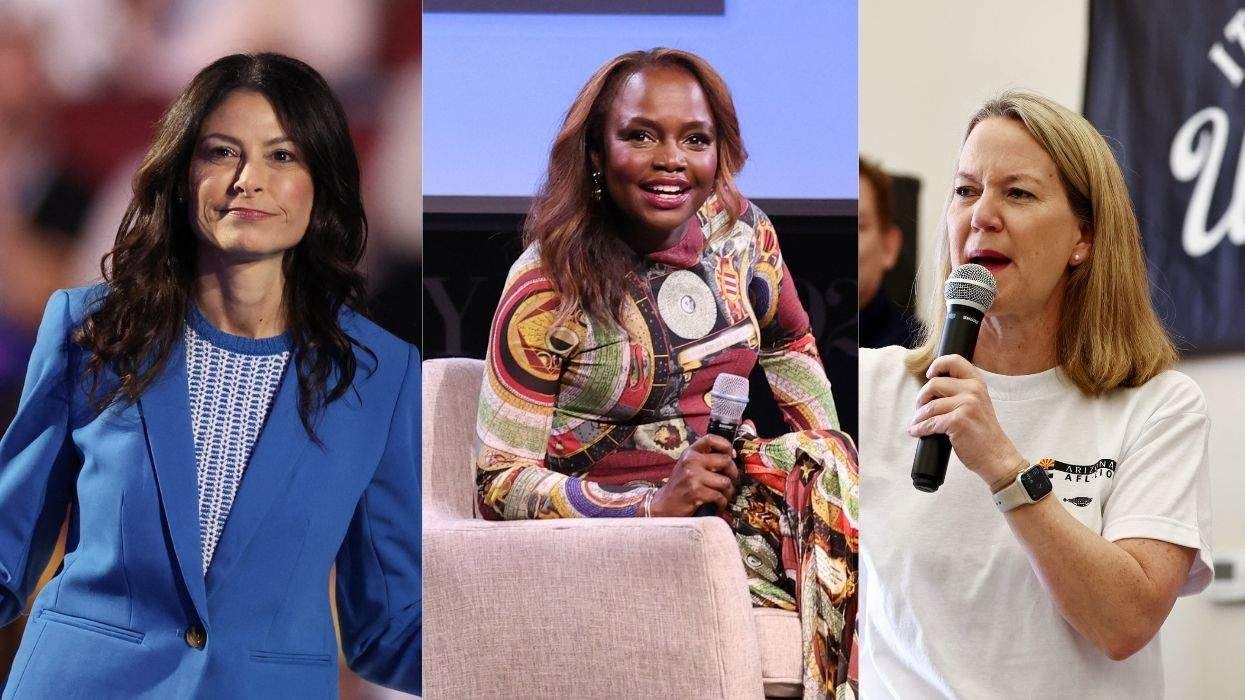May 18 2006 3:32 PM EST
CONTACTAbout UsCAREER OPPORTUNITIESADVERTISE WITH USPRIVACY POLICYPRIVACY PREFERENCESTERMS OF USELEGAL NOTICE
© 2025 Equal Entertainment LLC.
All Rights reserved
All Rights reserved
By continuing to use our site, you agree to our Privacy Policy and Terms of Use.
We need your help
Your support makes The Advocate's original LGBTQ+ reporting possible. Become a member today to help us continue this work.
Your support makes The Advocate's original LGBTQ+ reporting possible. Become a member today to help us continue this work.
If Ellen brought American television's first lesbian star out of the closet, then Will & Grace broke barriers by turning a gay-themed comedy into a prime-time hit with mass appeal. But as the popular NBC sitcom about a handsome gay lawyer and his attractive heterosexual best friend ends its eight-year run on Thursday, the show's producers insist it was not their goal to make pop culture history.
"We never set out to do anything that special," cocreator David Kohan told Reuters this week. "Honestly, we were making a fairly traditional sitcom with a twist."
"A romantic comedy is only as good as the obstacles that keep the couple from getting together," Kohan added, paraphrasing a favorite maxim of Sydney Pollack, the veteran producer he once worked for. "And so, we thought, What if we have an absolutely insurmountable obstacle?"
The idea was also inspired by a friendship between Kohan's writing partner, Max Mutchnick, and a woman he dated before coming out of the closet. And so the premise for Will & Grace, the ultimate star-crossed couple, was born.
Debuting in 1998, the series starred Eric McCormack and Debra Messing in the show's respective title roles--single gay lawyer Will Truman and his straight interior designer Grace Adler, who share a Manhattan apartment after she leaves her fiance at the altar. Rounding out the quartet of series regulars were its two comic foils--Sean Hayes as Will's platonic but flamboyantly gay pal Jack, and Megan Mullally, a boozy socialite who worked as Grace's assistant.
What made the show a prime-time hit was not social commentary, but the sharp, rapid-fire comic patter among the four leads and an evolving galaxy of quirky characters and guest stars. "Within about two or three episodes, you kind of forget [about the show's] premise--that it's a woman and her gay best friend--and you just accept it as a group of friends, and that happened incredibly quickly," said Craig Tomashoff, West Coast bureau chief for TV Guide magazine.
Still, the show derived much of its humor from its gay pedigree (Karen to Jack: "Honey, you're so gay, you can see it from space!"), and some viewers complained the show perpetuated stereotypes. Mutchnick shrugged off such criticisms. "It's there and it's true. It is part of that world," he said of Jack's outlandish behavior, compared with Will's more subdued persona. "We were kind of hoping to get across to people there are more Wills in the world than there are Jacks. But that doesn't mean that there aren't Jacks."
The series also was a frequent lightning rod for Christian conservatives offended by its irreverent treatment of sexuality, gay and straight. Shelley Morrison, who played the show's maid Rosario, said, "When we taped before a live audience, we had three policemen on the set. One time this couple came up to me, and the man put his hand over my mouth and said, 'You'll burn in hell for this.' Some people could not take the subject matter, but most just said, 'Thank you for making us laugh."'
While noted for celebrating themes of diversity, the show avoided a preachy tone that many critics said killed the Ellen DeGeneres sitcom Ellen, which made history by introducing the first openly gay lead character in prime time. Before Ellen, gay life on TV was consigned to supporting characters (like Billy Crystal on Soap) or individuals of ambiguous sexual orientation (Tony Randall on Love, Sidney).
Arriving after the demise of Ellen, Will & Grace was the first gay-themed, prime-time comedy to gain a mainstream following and become a huge commercial success. "This was the show that really brought TV comedy out of the closet," said Robert Thompson, head of Syracuse University's Center for the Study of Popular Television.
However, Thompson questioned whether some in the gay community might be offended by the fact that McCormack's character seemed ready, as the series neared its conclusion, to forsake a relationship with another man in order to raise a child with Grace. Mutchnick urged viewers to stay tuned for the final episode, promising that he and Kohan were "very careful in the finale to not sell out any of these characters."
Messing, making a guest appearance Tuesday on the CBS Late Show With David Letterman, said she was sure the finale would leave fans of the show "satisfied. It addresses each one of the characters, and it ends in a good way for all four of us," she said. (Steve Gorman, Reuters)
From our Sponsors
Most Popular
Bizarre Epstein files reference to Trump, Putin, and oral sex with ‘Bubba’ draws scrutiny in Congress
November 14 2025 4:08 PM
True
Jeffrey Epstein’s brother says the ‘Bubba’ mentioned in Trump oral sex email is not Bill Clinton
November 16 2025 9:15 AM
True
Watch Now: Pride Today
Latest Stories
Lesbian educator wins $700K after she was allegedly called a ‘witch’ in an ‘LGBTQ coven’
December 04 2025 10:59 AM
Years before Stonewall, a cafeteria riot became a breakthrough for trans rights
December 04 2025 10:50 AM
Charlie Kirk’s widow set to join out CBS News chief Bari Weiss for televised town hall
December 04 2025 10:20 AM
Women's Institute to ban transgender women after U.K. Supreme Court ruling
December 03 2025 4:10 PM
Grindr supports age verification bill introduced by two Republicans
December 03 2025 3:30 PM
Sarah Paulson & Holland Taylor's cutest moments on the Walk of Fame
December 03 2025 3:25 PM
Here's what Zohran Mamdani has promised to do for LGBTQ+ New Yorkers as mayor
December 03 2025 2:20 PM
Upstate New York Methodist minister comes out as transgender to congregation during Sunday service
December 03 2025 9:24 AM
Transgender Army vet running for state delegate in red Maryland district is all about showing up
December 03 2025 7:00 AM
7 times Pete Hegseth was the definition of toxic masculinity
December 02 2025 5:46 PM
Trending stories
Recommended Stories for You




































































Charlie Kirk DID say stoning gay people was the 'perfect law' — and these other heinous quotes